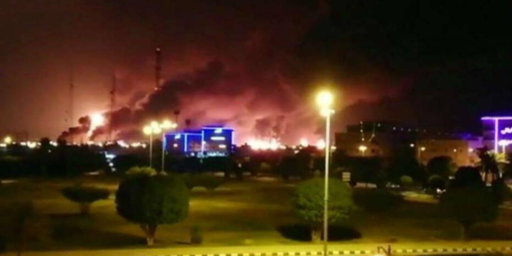Why al Qaeda is Fleeing Iraq
StrategyPage – Why al Qaeda is Fleeing Iraq
Al Qaeda operations in Iraq have encountered unexpected problems. Iraqis have become increasingly hostile to al Qaeda’s suicide bombing campaign. Religious leaders, which al Qaeda expects to get support from, have been openly denouncing these bombings. Iraqis, aware that they are more likely, than American soldiers, to be victims of these attacks, are providing more information on where the al Qaeda members are hiding out. Most of the al Qaeda in Iraq are foreigners, and easy for Iraqis to detect. As a result of this, many of the al Qaeda men have moved back to Fallujah, which has become a terrorist sanctuary. The interim government is trying to convince the tribal and religious leaders of Fallujah to back a military operation in the city to clear out the various al Qaeda, criminal and Baath Party gangs. But the gangs of Fallujah are quick to threaten any local leader that shows signs of supporting the government. While the Fallujah leadership is intimidated, many residents of Fallujah are not, and are providing information to the coalition, which has led to attacks, with smart bombs or coalition and Iraqi troops, on buildings used by al Qaeda, or other gangs, as headquarters.
Al Qaeda has found the atmosphere even more hostile elsewhere in Iraq, and many of the terrorists have returned home. This is especially true of those who came from Saudi Arabia (and other Gulf nations, particularly Yemen) and Syria. Few, if any, al Qaeda came from Iran, which is Shia Moslem. Al Qaeda is dominated by Sunni Moslems who are often violently anti-Shia. While the hundreds of returning al Qaeda veterans are still determined to achieve al Qaeda’s goals of world domination, they are also more realistic. Fanaticism was not sufficient to chase the foreigners from Iraq, and the Arab media’s sensational, and largely false, reporting of the impact of al Qaeda’s attacks contributed to the disillusionment.
Saudi Arabia and Syria are seeing an increase in al Qaeda activity because of the return of these survivors of the Iraq operations. However, many of those Saudis and Syrians who went to Iraq, didn’t come back. Casualties were heavy, and the guys who had more on the ball, and were luckier, made it back to carry out al Qaeda’s plans in their home countries. Here, al Qaeda wants to establish Islamic republics, and drive out infidels (non-Moslems.) This is much harder to do in Syria, which has an experienced secret police and security organization which has crushed Islamic radicals in the past. Saudi Arabia has also put down Islamic radicals in the past, but has a much less oppressive police force than Syria. Saudi Arabia has always ruled more by cooperation than coercion, and al Qaeda is taking advantage of this trust to carry out many attacks. Very few al Qaeda attacks have taken place in Syria, although some are expected because of the returning terrorists, and their experience operating in the harsh environment of Iraq.
All the Persian Gulf nations are seeing an increase in al Qaeda activity, especially in Yemen. Here, in the homeland of the bin Laden family, al Qaeda has always been active. But the Yemen government had made deals with many of the pro-al Qaeda tribes to keep the violence down. Unfortunately, that “arrangement” allowed al Qaeda to establish sanctuaries for recuperation and training.
Interesting. It’s important to remember, though, that al Qaeda is just one brand name in the jihadist movement.






Iraqis, aware that they are more likely, than American soldiers, to be victims of these attacks, are providing more information on where the al Qaeda members are hiding out.
Now, who was the commenter a couple of weeks back who was predicting the opposite, arguing that all Iraqis are more likely to be sympathetic to the terrorists than to their own government?